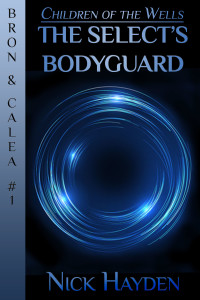Select Grigor awoke, suddenly, eyes upon the dark ceiling, mind still flush with images of brilliance and heaviness and noiseless sound. He gathered together the pieces of the dream like a man drawing his children close, and when he had firmly arranged them in his arms, his fingers tightened on their shirtsleeves so they would not escape. Then he rose and made his quick, birdlike way to his office, shuffling the images before him.
He pressed on the electric light. It was quicker than drawing magic for the same purpose. He threaded his way around stacks of books, old albums, discarded pieces of machinery, and a chair and end table that had fallen some months past. His desk waited like a burial mound at the room’s end, piled high with papers and journals, odds and ends. He placed the pages that were on the desk chair onto a teetering pile of others nearby, sat, pushed aside the sketches, found a blank corner on the back of some treatise, and began to write.
He wrote with his nose nearly to the paper. He scribbled quickly, in an indecipherable scrawl, pressing the words close. He ran the words around the margin, moving the paper like a woman pulling material through a sewing machine. He wrote for 10 minutes, then stopped.
He looked over his words, squinting to make sense of the compressed handwriting. “No–it’s no good. No good!”
He pressed his hands against his eyes, but the images were fading, slipping through his fingers. The words were dust, not the scream and tremor of the dream.
A half-drunk cup of tea sat within reach atop something vaguely recognizable as the arm of a sofa. He heated it with a quick burst of magic. Holding the cup with both hands, he sipped carefully. Just right. It was not easy to heat a half-cup of tea just right the first time, but he had made a special skill of warming tea.
He closed his eyes and willed the dream back. There was still a thread–a sense of falling. It was not a physical sensation but that strange half-moment of realization you sometimes had when you knew you were falling asleep. He could still catch the exact sense of it. He used it to connect to the next emotion, the next image. Desolation. An empty room. Light above, nothing below. Despair.
If he had to say in plain words what it meant, he would say he was dying, but like most dreams, what it was and what it felt like were two different things. His death had been the dream’s setting, but not its plot; its key, but not its melody.
“Somewhere, somewhere….”
He scavenged about, rearranging the stacks of research like vast Towers of Hanoi, uncovering volumes he had studied until something else had caught his attention. Still, even in the mess, he knew he would find what he was looking for. He had a way of touching a book and remembering what worlds it contained.
This one, a study of linguistics, words morphing and multiplying. This one, a study of drylands agriculture, dusty and thin. This one, a biography of Jaim Falsan, unhistorical and pretty. This one–
Yes, this one. Ancient images, blasted lands. The thin, black book, worn at the edges, from Thyrion. An exchange between scholars. He’d given a first print copy of Hewren for this–this, oral folktales and legends from the northern villages, written for the first time. The north was a brutal land with hard people living where the wells were nearly pits and the land barren.
And he remembered what the book sung, what he had not quite forgotten. It whispered of ancient days beneath a red and swollen sun. Of famine and sword and plague. Of land cracked and thirsty and desperate for men’s blood. Days before the wells.
It sang the melody of his dream.
He sat cross-legged on the ground, his studies towering over him, and opened the book of stories. The words crashed through him, feeding that vague, terrible, beautiful vision that had woken him and which he wanted to capture somehow.
His hands found another discarded teacup as he flipped the pages. The dregs were old and rancid, but he drank it down.
He stopped to dig the pen from behind his ear. He wrote in the margins of that age-old book these words: The Wheel is broken.
Yes–yes, that was the center, the thesis, the seed. If the structure which they had created, if the rules and systems which guided Jalseion, if the testament to intellect and ingenuity of the brightest minds shattered, that would be very near what he meant to write, what the dream sang.
The Wheel is broken.
The wheel was the first great invention, the symbol of progress, the unending movement, the embodiment of simplicity and elegance.
Grigor contemplated the words, turning over the phrase, tasting it. The dream had gone. He set the book with the words he had written upon the desk, marking the page with a paperweight.
It was rather beautiful, really, how it encompassed the death and pain and tragedy of his dream, or at least the memory of the images. In the morning, he would flesh it out. Into a poem, perhaps, a nice, sad elegy. He had never written an elegy. He could share it at the club.
He shut off the light. The glow of the Well below shone through the windows and upon the walls, faint and everlasting, and he dreamed no more.

Don't miss a single word of stories as they are published! You'll also receive first notice of special sales and behind-the-scenes information.
